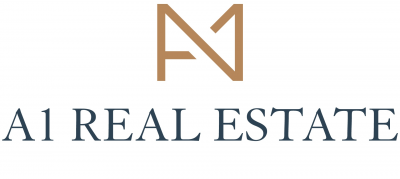
Hôtel vs appart-hôtel vs appartement meublé : quelle option pour un séjour de 3 à 12 mois à Paris ?
Table of contents
- What should I do before choosing a credit?
- What types of credit rates? Over how many years?
- What additional costs should we anticipate?
- What should I look for before signing for a credit?
- Is borrower insurance mandatory?
- What are the loan application documents?
- What will the bank look at before granting a loan?
- What are the accession grants?
What types of credit rates can be offered?
Over how many years can a credit be repaid?
When you apply for a mortgage in France, there are three main types of credit you can get. These include:
Important Note: Most home loans granted in France are “depreciable”. Their duration theoretically varies to span between 5 to 30 years.
- The fixed-rate credit: the monthly payments remain the same over the duration of the loan.
- The variable rate credit (or revisable rate): the monthly payments evolve according to two stock market indices of reference (may vary upwards or downwards).
- The capped variable rate credit: variable rate with a limit set in advance. Rates vary up to a certain ceiling.
Important Note: Most home loans granted in France are “depreciable”. Their duration theoretically varies to span between 5 to 30 years.
What additional costs should be anticipated?
- Notary fees, which include notary fees but especially transfer taxes (taxes and other standard registration and management fees) accruing to the State. It does not matter if you buy in the new or the old.
🖊 Also note that notary fees on the acquisition of an old property are valued at approximately 7 or 8% of the price against 2 to 3% of the sale price for new real estate!
- Real estate agency fees (if you go through a real estate agency). Agency fees represent a significant sum that will inflate the overall cost of your transaction from 1 to 7% of the selling price, approximately
- Mandatory guarantees (surety, mortgage, etc.)
- Application fees (representing approximately 1% of the borrowed capital, these fees are negotiable)
- Real estate loan insurance : Since the Lagarde law, it is possible to decline the insurance offer of your bank to prefer a contract taken out with a third party organization (in other words the delegation of insurance)
What should you look at before signing for a mortgage?
What guarantees can a bank require to grant a mortgage?
Before taking out a mortgage, the bank or credit institution must provide you with a pre-contractual information sheet (FIP). This sheet must contain:
What are The Kinds of Financial Guarantees in France?
- The type of credit, amount, duration, and rate of your mortgage
- The APRC (Annual Percentage Rate of Charge)
- The usury rate is the maximum annual percentage rate of charge (APR) that a credit institution cannot lend money to. Every quarter, the Bank of France establishes the average of the rates increased by one-third and will be valid for the following three months. And this can apply to your mortgage too.
- Compulsory insurance and its amount (including borrower insurance)
- Repayment deadlines
- Application fees
- Indemnities and risks of termination (in case of delay)
- The withdrawal periods and the contact details of the lender and the borrower
What are The Kinds of Financial Guarantees in France?
- The Guarantee of The Loan
- This is a mortgage loan. In case of non-payment, the bank seizes the property and puts it up for sale.
- The mortgage is the most expensive loan guarantee. It also involves notary fees and a land registration tax. And it runs until the loan is repaid in full and an additional one year.
- Registration in Privilege of Lenders of Money (IPPD)
- The IPPD works the same way as the mortgage but it is less expensive and you do not pay taxes on it. It runs two years after the full repayment of the property.
Is borrower insurance mandatory to obtain a mortgage?
What questions should be asked of the banker?
There is no legal requirement for a borrower to be insured. But you should know that a lender may consider that such insurance is essential to grant you credit, especially because in case of non-payment.
Loan insurance also takes over in the event of job loss, death, and PTIA (Total and Irreversible Loss of Autonomy) since it covers you and your loved ones in light of such situations.
Questions You Need To Ask
As you apply for a mortgage, you need to ask these questions:
Loan insurance also takes over in the event of job loss, death, and PTIA (Total and Irreversible Loss of Autonomy) since it covers you and your loved ones in light of such situations.
Questions You Need To Ask
As you apply for a mortgage, you need to ask these questions:
- How much can I borrow?
- How much does the application fee cost?
- What guarantees are included and at what cost?
- What is the cost of loan insurance?
What are the documents related to the application for a mortgage?
What are the documents relating to the applicant's resources?
As with any other application process, getting a mortgage required documents. They include:
Most importantly, you need to include documents relating to your financial resources:
- Compromis de vente or promise to sell (signed) or Reservation contract for acquisition in VEFA (preliminary contract).
- Contract for the construction of a detached house or building permit with proof of future work (estimate) for an old property that needs to be renovated.
- Documents relating to a zero-interest loan application if you are a first-time buyer (i.e. technical diagnostics, a rental lease, a certificate of free accommodation, etc.).
Most importantly, you need to include documents relating to your financial resources:
- Proof of employment (i.e. company ID, employment contract, etc.).
- Your last 3 payslips or last 3 balance sheets (for self-employed).
- Your last 3 bank statements.
- Your last 2 tax notices.
- Proof of any possible credit (in progress).
- Proof of personal contribution.
- A pension or pension title for the last 3 months (if applicable).
- A CAF certificate (if applicable).
- Any document attesting to any land income.
A mortgage is an operation wherein an entity (i.e. mortgage company, bank, finance company, etc.) lends a sum of money to help finance the purchase and/or construction of a property (housing and/or land) for residential and/or professional use. And while it's common, it pays to know more before you get a mortgage yourself.
What should be done before opting for a mortgage?
To be able to take out a mortgage in France, it is essential to show the institution that your file is solid, reliable and offers proof of your solvency. It's vital that you present a stable financial situation and proper resource management too. And to ensure this, make sure you:
- Are currently employed
- Have a solid set of permanent contracts (for self-employed)
- Pay attention to your banking habits (i.e. how you spend, how you save)
- Set a budget
- Build a contribution
- Know its capacity and debt ratio (in principle, it must not exceed 33% of income)
- Debt ratio = monthly repayments / net fixed income x 100
- Compare institutions to find and choose the best possible rate
- Read the conditions of the mortgage and that you meet each one.
What will the bank look at before granting a mortgage?
Upon reviewing your mortgage application, the financial institution will also look over your:
Important Note: Since the Lemoine Law, the health questionnaire is no longer required for real estate loans of less than €200,000.00 and whose end date occurs before they turn 60 years old.
- Current professional situation - Institutions will be more cautious to lend if you (or your co-borrower) are on a fixed-term contract.
- Financial situation - Have you been overdrawn recently? This can make your financial situation look fragile.
- Debt capacity - This is the maximum monthly repayment capacity. This must not exceed one-third of your income. The bank may ask what are your current (or future) consumer loans are.
- Personal contribution - This is the self-financed part of your project. The greater your contribution, the more you will be able to negotiate your loan with your lender. Generally, a contribution represents at least 10% of the purchase price of the property.
- Over-indebtedness - Institutions systematically consult the central file of checks and the National File of Incidents of Repayment of Loans to Individuals (FICP).
- The state of your health - To obtain credit, it is necessary to take out borrower insurance. This insurance will require the completion of a health questionnaire. If your health is deemed poor, your insurance and credit may be denied.
Important Note: Since the Lemoine Law, the health questionnaire is no longer required for real estate loans of less than €200,000.00 and whose end date occurs before they turn 60 years old.
What are the aids for accession?
- The Social Accession Loan (PAS Loan)
- The Zero-Interest Loan (PTZ)
- The Action Housing Loan (The former 1% employer)
- The Social Loan of Rental-Accession (PSLA)
Ce qu’il faut retenir :
- When applying for a mortgage, you need to show the financial institution (i.e. banks, mortgage companies, etc.) that your current financial situation is solid and stable.
- Most real estate loans granted in France are "depreciable," which means that their duration theoretically varies between 5 to 30 years.
- Anticipate a few additional costs to subscribe to a credit.
- The financial institution may require certain guarantees but borrower insurance is not mandatory
- Aid is available for accession

You want to
to sell in Paris or its surroundings ?
Contactez-nous
Posted on 05/01/2023 by
Andy LECUYER




